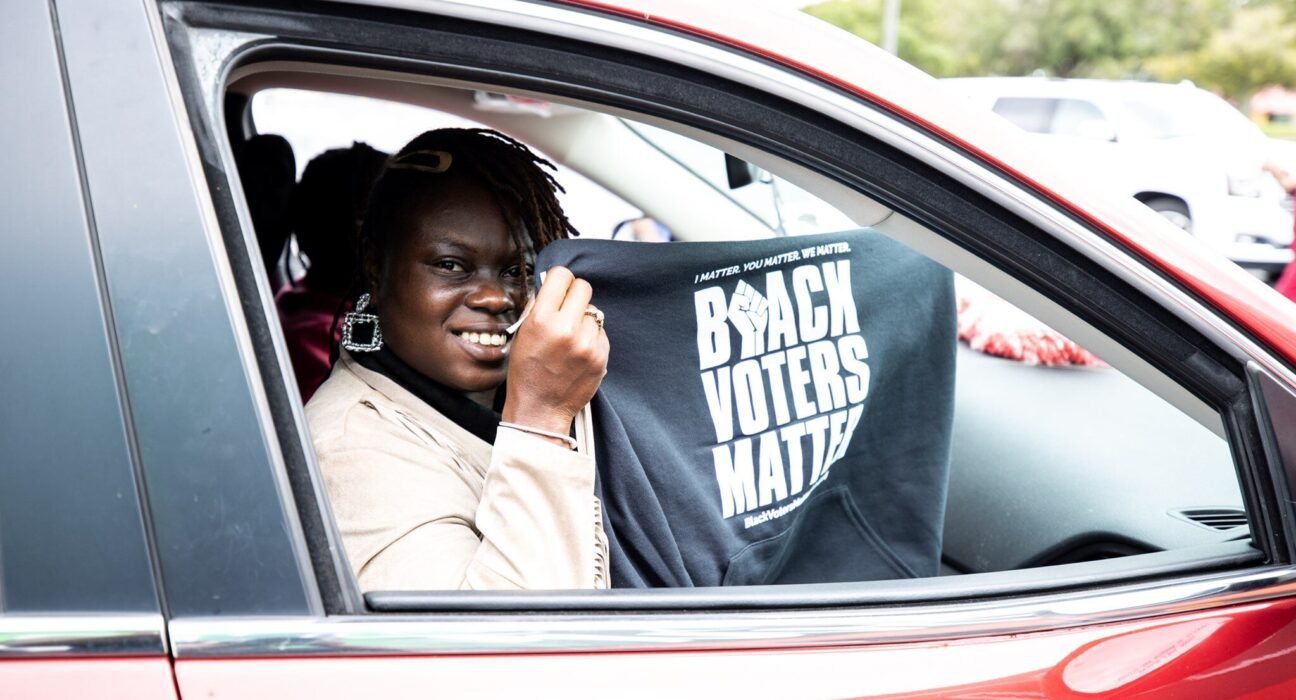In the aftermath of the recent November 7 elections, Black voters have emerged as a pivotal force, potentially determining the outcome of the 2024 elections in key battleground states. Despite a noteworthy shift in support for former President Donald Trump among Black voters, the Democratic coalition remains a central force, with intricate dynamics shaping the political landscape.
While President Joe Biden secured a robust 92% of Black support in the 2020 elections, a September poll revealed a dip to 66% if the hypothetical 2024 elections were held that month. However, recent election results underscore the enduring influence of Black voters in critical races and issues.
One significant episode unfolded in Ohio, where voters on November 7 approved a constitutional amendment safeguarding abortion rights until viability. Over 80% of Black voters, surpassing the proportion of white and Latino voters, supported the measure, marking a pivotal moment in the state’s political landscape. Democratic strategist Adrianne Shropshire emphasized the impact, stating, “We awakened the sleeping giant in Ohio.”
The abortion rights victory in Ohio carries potential implications for Democratic gains in 2024, setting the stage for increased Black voter turnout. A forthcoming anti-gerrymandering amendment, if passed, could further reshape the electoral landscape, replacing the Republican-dominated Ohio Redistricting Commission with a bipartisan citizen-led redistricting body.
Virginia witnessed a surprising upset driven by concerns over potential abortion restrictions under a Republican governor. The Democrats managed to hold the Senate and reclaim the state House, marking a blow to Governor Glenn Youngkin. The threat of a 15-week abortion ban resonated strongly with Black voters in a state where Black patients face higher maternal mortality rates.
Kentucky, despite its deep-red disposition, saw Democratic Governor Andy Beshear prevailing over a Republican challenger endorsed by Trump. The rejection of a Black Republican, Daniel Cameron, highlighted the complex dynamics at play. Cameron’s handling of the Breonna Taylor case became a focal point, with the Black Voters Matter Fund’s political action committee releasing an ad criticizing his investigation.
The 2023 elections also witnessed historic achievements for Black candidates. Gabriel Amo became Rhode Island’s first Black member of Congress, while Cherelle Parker was elected as Philadelphia’s first Black woman mayor.
However, challenges loom on the horizon, with economic issues and concerns about the effectiveness of political representation posing potential hurdles for Black voters. The Democratic Legislative Campaign Committee estimates a decrease in Black voter turnout in Mississippi’s recent gubernatorial race compared to 2019, signaling the need for ongoing efforts to address voting access and awareness.
As the 2024 presidential race approaches, the outcomes of these recent elections offer insights into the issues animating Black voters and the nuanced landscape that candidates must navigate to secure their support.

